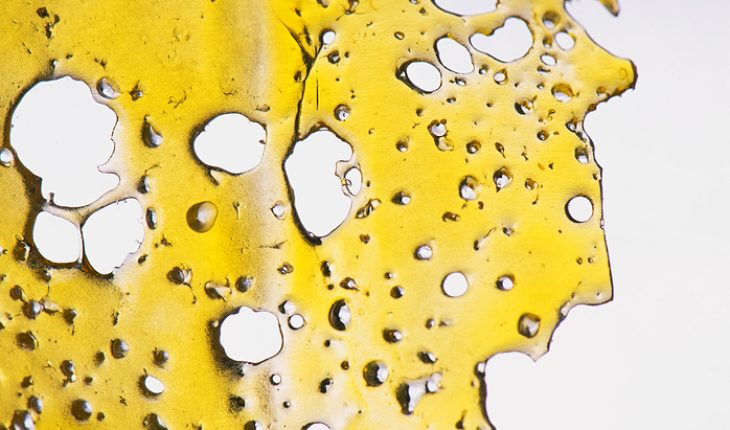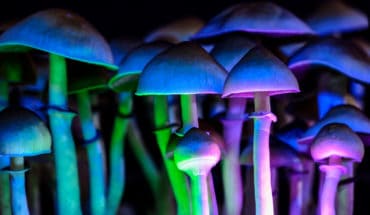Spend a bit of time browsing the internet for information about health conditions and you’ll eventually run across pages claiming that cannabis is the cure for everything from chronic pain to cancer, epilepsy to multiple sclerosis.
Although these pages may boast lists of tens or even hundreds of scientific papers claiming to prove that ‘weed is the cure’ (spoiler: they don’t), there are still big questions to be answered about the use of cannabis in a clinical context.
Does it work and is it safe?
While cannabis in all its forms remains a Category B drug in the UK, making it illegal to supply or possess for any reason, the United States is undertaking an impressive experiment with 24 states now making marijuana legal for a range of medical conditions. 1.
This move has prompted a huge amount of debate and soul-searching in the medical and political communities, much of which is summarised in a recent debate hosted by the US policy research institution Brookings. 2. There are also interesting parallels to be drawn with the burgeoning ‘Big Marijuana’ industry, which is yet to show its true character, and its demonstrably evil big brother, Big Tobacco. 3
So, does it work?
Here it very much depends on what disease you’re interested in.
A major analysis in 2015 pulled together data from nearly 80 clinical trials of cannabis or cannabinoids (the purified active chemicals in cannabis) for a wide range of conditions and concluded that “There was moderate-quality evidence to support the use of cannabinoids for the treatment of chronic pain and spasticity. There was low-quality evidence suggesting that cannabinoids were associated with improvements in nausea and vomiting due to chemotherapy, weight gain in HIV infection, sleep disorders, and Tourette syndrome.” 4.
It’s not exactly a robust cheer of approval, although there is stronger evidence to support the use of cannabis or cannabinoids for treating intractable epilepsy. 5. But when it comes to my own field of expertise – cancer – the current evidence for the clinical use of cannabis or purified cannabinoids for treating cancer in patients is patchy at best, with the majority of the data coming from tests on tumour cells grown in the lab. 6.
Then there are the safety issues It is often implied that cannabis is completely safe, perhaps because it is ‘natural’ – a dangerous fallacy given that many highly toxic poisons are also natural, from arsenic to deadly nightshade. While it’s hard to pin any deaths specifically and solely on cannabis (which isn’t to say there have never been any) and the drug is broadly safe and tolerable, this doesn’t mean that cannabis – like any drug, illegal or not – is completely risk-free.
As well as sifting the evidence for the benefits of medicinal cannabis, the 2015 meta-analysis highlights a number of serious “adverse events” detailed in studies of the drug as a treatment for various conditions, including psychiatric disorders, musculoskeletal problems and blood disorders.
The authors of that study also describe commonly-experienced minor adverse effects – notably dizziness, dry mouth, nausea, fatigue, somnolence, euphoria, vomiting, disorientation, drowsiness, confusion, loss of balance, and hallucination. To some patients already suffering from chronic disease, these may be unwanted and unacceptable. To others, it may just sound like the typical experience of being stoned.
Get Up, Stand Up
I have often been accused of being ideologically opposed to the use of cannabis to treat cancer, usually by vocal stoners on social media. I’m not – but I am ideologically opposed to patients being misled into taking treatments with no good evidence of benefit. There are legitimate concerns that medical marijuana is merely a back door for recreational use of the drug, and the best thing that will assuage the concerns of those who are worried about drug abuse but pro-medicine is data.
In the UK, the charity Cancer Research UK is funding clinical trials to test the effectiveness of a synthetic cannabinoid (dexanabinol) and cannabis extract (Sativex) on advanced cancer, while researchers led by Dr Wai Liu at St George’s Hospital in London are keen to gather the experiences of cancer patients who have taken illegal cannabis oil or other marijuana products.7.
But more importantly, there is a unique opportunity for the US to seize the initiative and provide some real answers. What we urgently need to see is systematic, thorough and timely research from the US National Institutes of Health and other agencies to gather information on whether the profusion of medical cannabis use in North America is making a difference to people’s lives and health, whether positive or negative.
Whether they like it or not, the states that have legalised medical cannabis have placed themselves in one arm of an observational study, while those who haven’t are on the other side. The change in the US legislative landscape also opens up more opportunities to do clinical trials of cannabis and cannabinoids for a wide range of conditions, which should provide the evidence base that has been so sorely lacking to date. This leaves an interesting open question about what happens if the research shows that there is no medical benefit for certain indications. Will the people pushing so hard for medical use back down in the absence of proven efficacy?
From my personal perspective, I would like to see honesty – whether in campaigning or in legislation. As a recreational drug, cannabis arguably causes less health and societal harm that tobacco and alcohol. 8. So if there is evidence and public desire to support recreational use, then I believe our politicians should consider legalising it. But let’s not pretend that cannabis can cure diseases if it turns out that it can’t. Instead, let’s find out what it actually can do.
Cancer patients and others suffering from severe chronic conditions deserve to know for sure whether the ‘cannabis cure’ that is being dangled in front of them actually works for any given condition, and what the side effects are. It’s what we expect from the conventional tests and treatments that come through into clinical use, and it’s what we should expect of cannabis too. And (hopefully) solid scientific evidence should be the bedrock on which any future decision to legalise medical marijuana in the UK should be made. Although given the current political climate in the UK, I’m not holding my breath.
- https://en.wikipedia.org/wiki/Cannabis_classification_in_the_United_Kingdom https://en.wikipedia.org/wiki/Medical_cannabis_in_the_United_States
- http://www.brookings.edu/events/2016/04/14-marijuana-rescheduling-debate-hudak
- http://www.nejm.org/doi/full/10.1056/NEJMp1406074
- http://www.ncbi.nlm.nih.gov/pubmed/26103030
- http://www.scientificamerican.com/article/can-cannabis-treat-epileptic-seizures/
- http://scienceblog.cancerresearchuk.org/2012/07/25/cannabis-cannabinoids-and-cancer-the-evidence-so-far/
- http://www.sgul.ac.uk/research-profiles-a-z/wai-liu
- http://www.drugscience.org.uk/blog/2013/10/24/think-cannabis-harmless-no-does-anyone-what-about-propagating-drug-hysteria-harmless/
- Medical cannabis: snake oil or health solution? - 3rd May 2016






